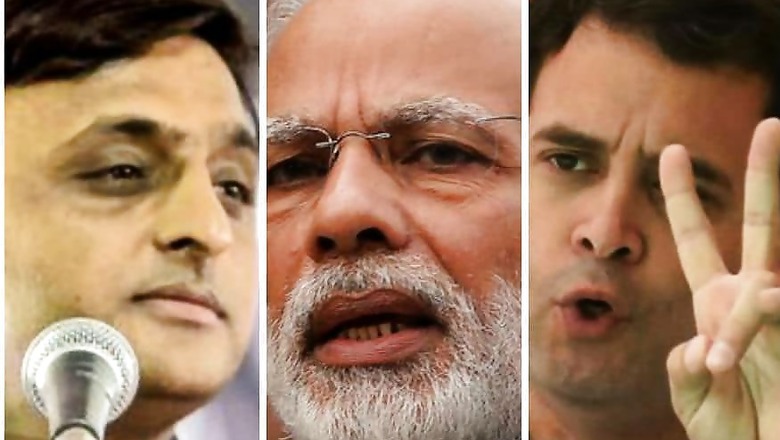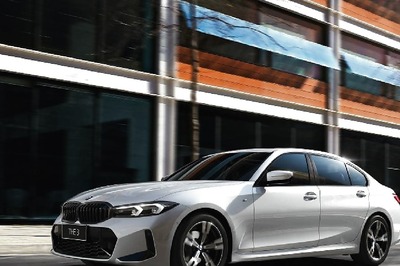
views
New Delhi: Many have called 2017 the year of Uttar Pradesh elections. For a state as diverse, huge and politically active as UP, every passing day, instead of throwing up hints of the potential winner, only adds more intrigue.
In such a scenario, one way to make sense of UP polls is perhaps to look at it as a relay race. Political contests in a state as big as UP, with 14.12 crore voters, are often conducted in several phases. And usually, the party that picks up momentum in the first two phases is more likely to outrun its rivals in the following phases.
Take, for instance, the case of 2015 assembly elections in Bihar. Four big parties – two regional and two national – were in the fray. The Mahagathbandhan, a coalition of RJD, JD(U) and Congress, seemed to be equally matched with Narendra Modi-led BJP.
Law and order risks spread over such a big state forced the election commission to conduct elections over five phases. Both the rivals announced major schemes and huge development programs just before ballots were cast in the first phase.
But by the end of first two phases, the political parties, as well as the voters, began sensing a tilt in scales. BJP began to betray nerves. Prime Minister Narendra Modi started to cancel his campaigns. Talk of development and multi-crore packages in the state were replaced by calls for shipping Muslims to Pakistan. At the end, BJP ended up losing Bihar.
“In the first two phases, people come to know the possibilities, which has a bearing on the voting patterns in the following phases. For example, the big question in UP polls this time is whom will the Muslims vote? We may find an answer after Western UP finishes polling,” said M.N. Thakur, associate professor at JNU's Centre for Political Studies.
Thakur argues that when Muslims living in the most communally sensitive area of UP - places like Muzaffarnagar, Saharanpur, Rampur, Sambhal and Shamli - make their mind up and cast their ballot, the word will travel through the rest of UP forcing, to avoid any vote split, other Muslims to follow suit.
“The key to winning UP will be through Muslim votes. If they start consolidating in any direction, the elections instead of a three-cornered fight will be a bipolar match,” Thakur added.
Interestingly, the West UP election looks to be a close fight between BSP and BJP. Does this mean SP-Congress combine is fighting this election with a handicap?
“For us every phase is important. We’re going to people with a message of growth and development, while BJP and BSP are trying to communally charge the atmosphere in the state. People will notice this and know whom to vote for. No, we’re not beginning this fight with a disadvantage,” said SP’s national spokesperson, Ghanshyam Tiwari.
Abhay Kumar Dubey, a New Delhi-based political analyst associated with the Centre for Study of Developing Societies, also feels that parties that create an impact in the first phase of elections will automatically carry that benefit in the following phases as well.
“Look, Rohilkhand may not vote as Bundelkhand; Poorvanchal may vote differently than Awadh. But the bottom line is that people who will vote in the third, fourth, fifth, sixth and seventh phases will be listening to the people who voted in the first two phases. Nobody, especially Muslims and Jats, will want a scenario of a vote split. Which is why I say that first two phases will be watched quite keenly by everyone else.”
But does a party that begins well always enjoy a cascading effect?
According to a former Chief Election Commissioner, SY Quraishi, the answer is, “Yes and no.”
“We know the proverb about well begun being half the job done...Sometimes this sort of thing matters, sometimes it doesn’t. Let me give you the example of Nitish Kumar in the last assembly elections. He was supremely confident of winning the elections but had only one request. ‘Conduct the election even over 10 phases but please provide security for voters and booths.’”
The last time Uttar Pradesh went to polls, elections were also conducted from West to East. BJP. But, there is a question mark over how popular BJP's calls for Ram Mandir, Dadri, Kairana and Triple Talaq, have been on the ground. Another big question is whether Muslims, whose votes split several ways in the last election, will vote 'tactically' this time.
There are several such questions, whose answers we might get closer to finding after February 15, when ballots for the second phase are cast.













Comments
0 comment